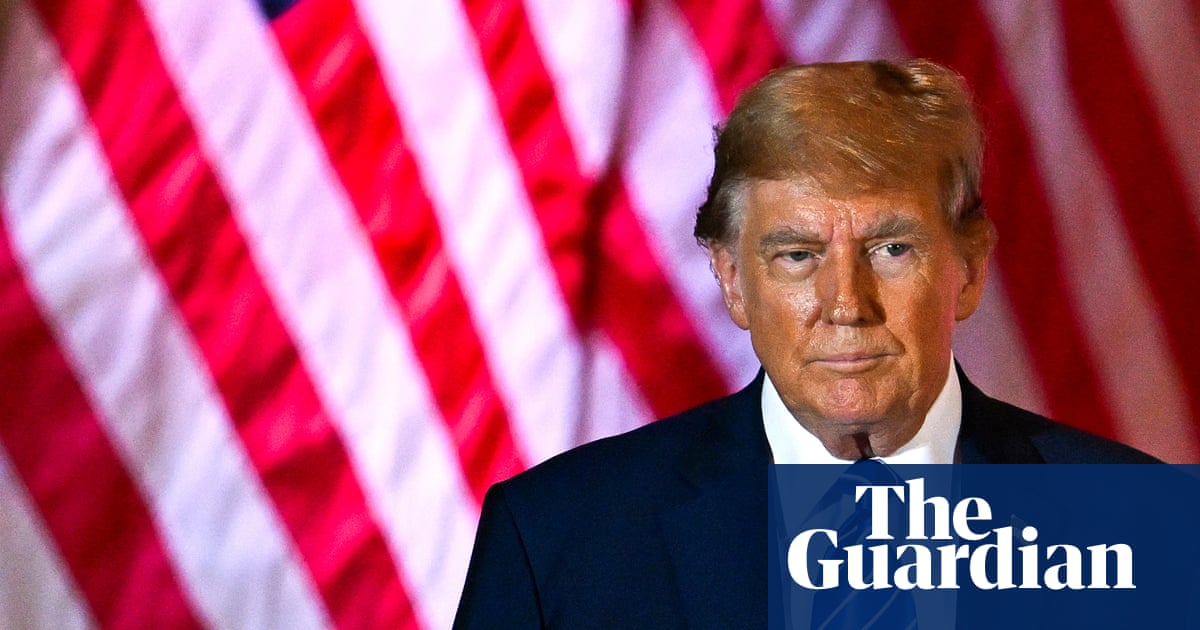The federal judge overseeing Donald Trump’s criminal case for retaining classified documents is expected on Tuesday to weigh a brazen attempt by the former president to prevent special counsel prosecutors from using some of the most incriminating evidence against him at trial.
The Trump lawyers will first argue at a sealed hearing that prosecutors’ access to transcripts of voice memos made by Trump’s ex-lawyer in the documents case Evan Corcoran – which constitute key evidence of obstruction – should be entirely revoked, according to people familiar with the matter.
And the Trump lawyers will later argue to the US district judge Aileen Cannon that prosecutors should be barred from using the 101 classified documents the FBI found at Mar-a-Lago in August 2022 because the search warrant used to seize them was improperly obtained.
The two-part request in federal district court in Fort Pierce, Florida, amounts to an audacious attempt by Trump’s lawyers to suppress evidence that would face serious difficulty in front of any other judge.
But Cannon has shown a proclivity to rule against the government thus far in evidentiary disputes and most recently agreed to strike a paragraph from the indictment because she decided that prosecutors’ legal argument to keep it in was misplaced – rather than crediting Trump’s legal argument.
The Guardian first reported last week that Trump’s lawyers would ask the judge to exclude the memos, arguing they should not have been given to prosecutors on the crime-fraud exception, which allows prosecutors to see privileged communications if legal advice is used in furtherance of a crime.
The sweeping request could have far-reaching consequences since the memos – with, for example, Trump asking whether they could ignore the subpoena, or a later suggestion to “pluck” out some classified documents instead of returning them to the FBI – are the strongest evidence of Trump’s obstructive intent.
Even if the judge excludes only some of the passages, it could dramatically undercut the strength of the obstruction case.
In the worst case for prosecutors, their evidence of Trump’s obstructive intent could be reduced to CCTV footage of boxes being moved at Mar-a-Lago by his co-defendants Walt Nauta and Carlos De Oliveira, logs of Trump’s calls with Nauta, and testimony about Nauta’s movements.
The obstruction charges center on Trump’s incomplete compliance with an 11 May 2022 grand jury subpoena that demanded the return of any classified documents in his possession, months before the FBI seized 101 classified documents when it searched Mar-a-Lago.
The Corcoran memos – the contents of which were first reported by the Guardian last year – have played a major role in bolstering the charge that Trump conspired with Nauta and De Oliveira to play a “shell game” in hiding boxes of classified documents so Corcoran could not ensure their return.
after newsletter promotion
The indictment quoted the memos as saying Trump responded: “Well, what if we, what happens if we just don’t respond at all or don’t play ball with them?” and “Wouldn’t it be better if we just told them we don’t have anything here?” and “Well, look, isn’t it better if there are no documents?”
After Corcoran found 38 classified documents in the storage room, his memos recount Trump asking him, “Did you find anything? …… Is it bad? Good?”, and made a sort of plucking motion, suggesting “if there’s anything really bad in there, like, pluck it out”.
Trump’s lawyers will argue that the chief judge was overly broad in turning over more than 60 pages of memos, and that the instances of Trump asking whether he needed to comply with the subpoena are questions that every defendant asks to understand the full scope of their obligations.
Trump’s lawyers are also expected to argue that none of the commentary – about Trump asking whether they needed to comply with the subpoena, or the plucking motion – satisfied the crime-fraud exception because it did not amount to Trump using Corcoran’s legal advice for a crime.
At the afternoon session, Trump’s lawyers will argue to Cannon that the special counsel’s team made misrepresentations when they applied for the Mar-a-Lago warrant, because the FBI agent who signed the affidavit allegedly omitted facts that could have meant the warrant was never granted.



